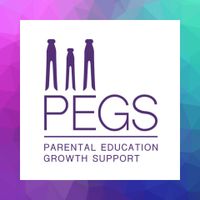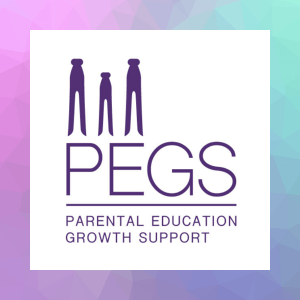Child to Parent Abuse:
Supporting parents and professionals.
PEGS aims to reduce the impact of CPA by helping parents, training frontline professionals, impacting policy and raising awareness.
What is PEGS?
PEGS is a social enterprise set up to support parents, carers and guardians who are experiencing Child to Parent Abuse (including those with adult offspring). We don't directly work with the child displaying the behaviours but have a network of partners whose expertise lies in this area.
We also train frontline professionals to recognise and effectively respond to CPA, and work with national and regional organisations to develop and implement policies.
Follow us on social media:
What is CPA?
Child to Parent Abuse is where a child (of any age) displays repeated abusive behaviours towards a parental figure. This abuse may be physical, verbal, economic, digital, coercive or even sexual - and it's thought to occur in at least 3% of UK homes, although the real figure could be much higher.
CPA is not 'normal' challenging behaviour experienced by most parents. It causes parents to feel fearful, isolated and like they're treading on eggshells, forces them to leave their careers and change their routines and lifestyles, and has a profound impact on families.
How can we help?
We've developed a range of virtual services for parents to enable access from anywhere in the UK, alongside training and policy consultancy for organisations looking to recognise CPA, improve their responses to it, and support those impacted by this type of abuse.
A letter from our founder
Dear Parent,
I see you; I know you’re there; I know the despair, the hurt and upset you are feeling. I know the feeling of blame, the guilt and the constant searching for answers and reasons. I know the sleepless nights, the worry about keeping your family safe, the struggle of trying to hold down employment. I know the looks and comments you get from family, friends and professionals, the tug you feel in your heart. I know that horrific pain that is running through you. I know how you hate yourself when you have thoughts of asking services for help or even to have your child placed with them. I know the failing you feel and how you are trying to survive each day without incident or trauma. I know you feel so isolated and alone even if you do have support around you. I know you’re doing the best you can in a situation where you have nowhere to turn. I know this is not your fault and that you are not to blame.
How do I know this? Because I was you. I was being abused by my child. I had all of those feelings and more. Accepting my child's behaviour was abusive was not easy or something I even wanted to consider, but this was the reality. Things will not always be this tough, things can improve and you as a family will find a safe way that works for you.
Right now, you may feel that nobody understands and that your situation is beyond help or support. I promise you it is not. You are not alone. I hear you. I will listen, help and act alongside you if needed.
PEGS was started to help those going through similar situations of extreme difficulty and worry.
PEGS is here for you, created out of trauma but going forward with love, passion and determination to see change.
All my love
xxx

Parent J
A really warm and friendly person, who is extremely passionate about
what she is doing and shows great empathy for everyone’s situation.
In 6 years of working with different professionals, she was the first to
really get it!!
Button
Parent S
Thank you so much, I can't put into words how much you have helped me. I was very low and desperate when I found PEGS , now not only do I feel more confident and happier, my son also appears happier and less angry and our relationship is improving again. At the start I wouldn't have thought that possible.
Button
Stay up-to-date with the latest news from PEGS

Links
Based in Shropshire and Derbyshire, operational across the UK
Unit 4 Darwin Court, Oxon Business Park. Shrewsbury SY3, Shropshire.



